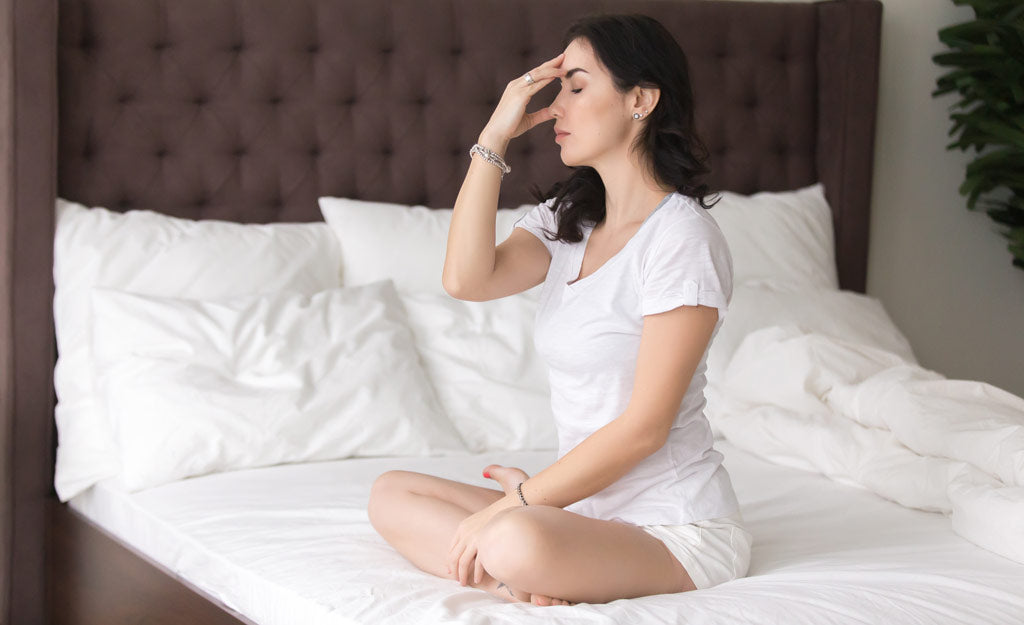For the average woman, menopause can be a major life transition that comes with its own share of physical, emotional and psychological challenges. Most women find it quite a struggle to deal with fluctuating hormones and everything that comes with it - irregular periods, hot flushes, night sweats, migraines, breast tenderness, itchy skin, vaginal dryness, and weight gain.
Statistics show that 70-80% of women experience various states of emotional distress due to symptoms of menopause.
The list seems endless and with so many unwelcome changes to deal with, most women end up feeling frustrated, confused or even isolated. It’s not uncommon to hear menopausal women complain about suffering from extreme moodiness, exhaustion, and even depression.
Menopause does not have to leave you with feelings of hopelessness or despair. There are positive steps you can take so that this significant life phase doesn't turn you into an emotional wreck.
Diet and lifestyle
Eating a low-processed, alkaline and high-antioxidant diet is important to allow the detox and elimination systems of the body to work efficiently. Hormonal imbalance is quite common during menopause due to the body’s inability to efficiently metabolise oestrogen, in particular. Optimal liver and digestive functions are essential so oestrogen can be metabolised properly.
For optimum digestion, it’s important to take fermented drinks and vegetables that support and build up the gut’s natural balance and defences. These bacteria assist in the breakdown of hormones excreted by the liver.
If liver function is sluggish, then many of the common menopausal symptoms develop. We suggest taking a liver support supplement containing natural amino acids and herbal medicines.
Manage stress levels
With busy lives, households and careers to manage, stress is a common issue among women transitioning to menopause. Often, women take care of themselves last and stress impacts the endocrine balance. The adrenals become exhausted and cannot take up the additional production of oestrogen leading to menopause. This results in dramatic and often debilitating symptoms such as sleeplessness, anxiety, and panic attacks.
Managing stress during this life phase is highly critical. Make sure you get adequate rest, quality sleep and regular exercise to ensure stress levels are kept to a manageable level. We highly recommend yoga and meditation to keep stress levels in check.
Balance the hormone control centre
We know hormones are starting to shift at this time of life leading to menopause. It largely depends on how well your body copes with this process. The pituitary and hypothalamus axis is the control centre which regulates your hormones. What we find is that diet and lifestyle changes are sometimes not enough to correct the underlying imbalance.
The current approach to treating menopause is to replace any deficient hormones – progesterone and testosterone, in particular. Dehydroepiandrosterone (DHEA) is another hormone produced in the adrenal gland which is reduced during menopause.
While there may be initial relief with hormone replacement therapy (HRT), the problem with this approach is three-fold. First, the human body immediately reduces its own natural production is when you provide it with an external hormone. So when menopause rolls around, the situation is only compounded. Second, oestrogen levels stay elevated. This does not treat the issues of oestrogen dominance and having prolonged elevation of oestrogen is not good for the body. It may even be related to certain cancers. Lastly, the supplementation of hormones confuses the endocrine system. This leads to a decrease in the natural ability of the body to control hormone levels.
Treatment considerations for the management of menopause
- Aid symptom presentations for the stage of transition (support the phase they are presenting with).
- Maintain a healthy waist-to-hip ratio.
- Balance Basal Metabolic Rate (BMR) and Total Energy Expenditure (TEE) or daily caloric intake with weight-bearing exercise.
- Aid in stress management.
- Support sexual health management.
- Avoid cigarette smoking.
- Address any underlying nutritional deficiencies.
- Reduce saturated fat intake.
- Reduce alcohol consumption. Avoid carbonated soft drinks as well.
- Ensure adequate hydration.
- Support emotional issues, relationships, and personal happiness.
Menopause can be easier
While menopause has its ups and downs, it doesn’t have to be as bad as it seems. There are plenty of things you can do to make it all easier – eat the right foods, exercise regularly, get the right supplements, and embark in a totally healthy lifestyle.
We also recommend you join our Happy Menopause Group on Facebook where you can share your experience and hear from other women. Yes, you are not alone and you can begin to embrace the positive aspects of menopause instead of dreading it!










Leave a comment
This site is protected by hCaptcha and the hCaptcha Privacy Policy and Terms of Service apply.